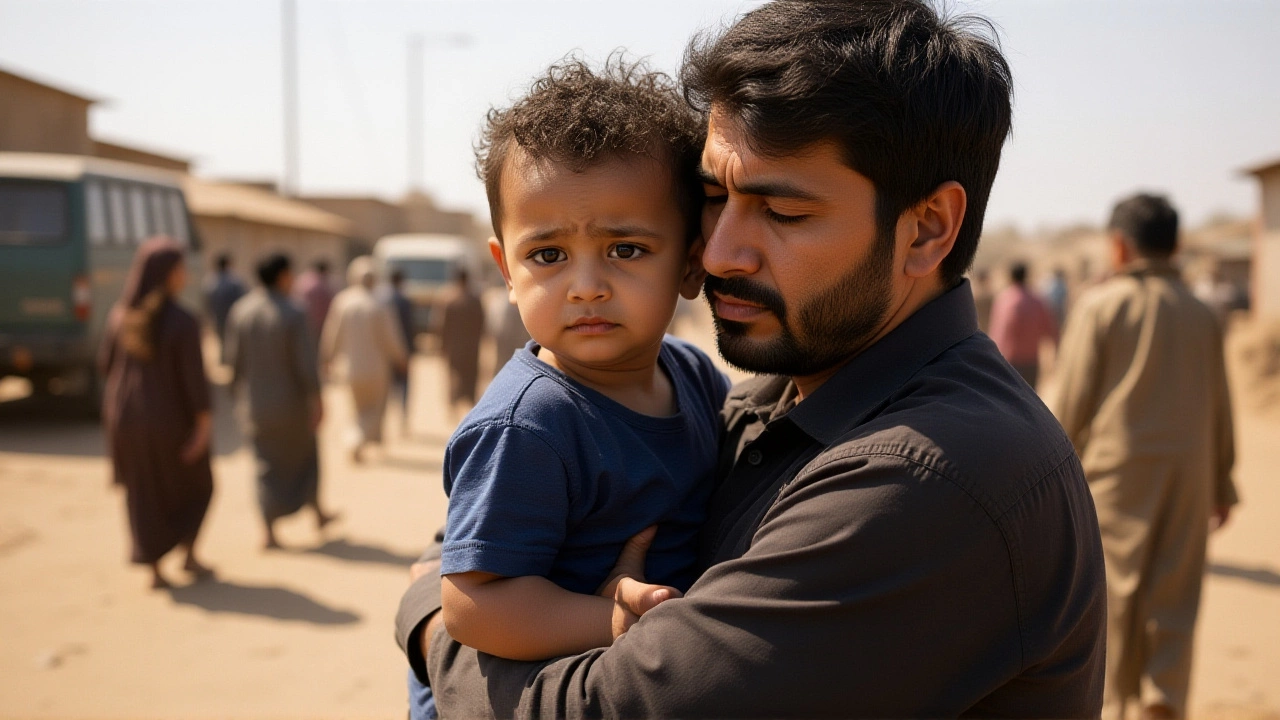When Donald Trump, President of the United States said he’d spoken with Narendra Modi, Prime Minister of India about averting a clash between India and Pakistan, the White House turned the press briefing into a headline‑making moment.
The call took place on Tuesday, October 21, 2025, amid Diwali fireworks and a flurry of diplomatic chatter. In the ensuing conference, Trump asserted, "हमने कुछ समय पहले भारत और पाकिस्तान के साथ कोई युद्ध न हो, इस पर भी बात की थी," implying that the two leaders had directly addressed the looming threat.
India’s Ministry of External Affairs shot back instantly, stating unequivocally that Pakistan was never on the agenda. The ministry’s spokesperson said, "The conversation was about cooperation on counter‑terrorism, not about Pakistan." The rebuttal came just minutes after the White House’s claim, turning the episode into a diplomatic tug‑of‑war.
Background to the Call
Earlier that week, on October 16, 2025, Trump had already sparked controversy by claiming Modi promised to curb India’s oil imports from Russia. Again, New Delhi denied the allegation, insisting its energy policy is driven by national interest, not foreign pressure.
These two incidents are not isolated. Since the summer, the Trump administration has been keen to project itself as a peace‑broker in South Asia, a narrative that often collides with the sober diplomacy practiced by Indian officials.
Trump’s Claim and India’s Rebuttal
According to Jayaprakash Ranjan, a journalist for Jagran in New Delhi
- Trump said, "मैंने भारत और पाकिस्तान के बीच कोई युद्ध न हो, इस पर बात की।"
- He added that trade considerations gave him a seat at the table.
The Ministry of External Affairs’ swift denial referenced the cease‑fire that followed Operation Sindoor, a brief border skirmish that ended after Direct communication between the Directors General of Military Operations (DGMO) of both nations.
Congress leader Jayaram Ramesh scoffed, "जहां प्रधानमंत्री छुपाते हैं, वहीं राष्ट्रपति ट्रंप उसका खोलता है," highlighting the political theater surrounding the statements.
The Role of Operation Sindoor
Operation Sindoor erupted in early October when artillery exchanges along the Line of Control claimed a handful of casualties. Both sides reported that five jets were shot down, though it remains unclear which nation lost them.
Indian officials maintain that the subsequent cease‑fire was achieved when the DGMOs of India and Pakistan exchanged encrypted messages, not because a third party, however influential, intervened.
Columnist Tavleen Singh and political analyst Rajat Sethi, speaking to broadcaster Barkha Dutt, argued that India’s primary security concern now is China, not Pakistan. "There is no shortcut to achieving might," Sethi warned, underscoring the broader strategic calculus.
Wider US‑India Relations
Trade talks have stalled for months, with both sides accusing the other of protectionist moves. Trump’s public closeness to Pakistan—exemplified when he honored Pakistan’s Army Chief Asim Munir in Washington—has added friction.
In June 2025, Modi declined a White House invitation, citing the simultaneous ceremony for Munir. The snub signaled a cooling of the bilateral relationship, which had previously been buoyed by the Quad and defense agreements.
Looking ahead, Modi is expected to join the ASEAN/East Asia Summit in Malaysia virtually, due to the Bihar Legislative Assembly elections. Trump, on the other hand, confirmed his attendance at the summit but will skip the G20 in South Africa next month, where Modi is slated to appear.
What Lies Ahead?
Analysts predict that future US‑India engagements will likely occur through multilateral platforms rather than direct phone calls. The Ministry of External Affairs has hinted at a joint statement on counter‑terrorism after the Malaysia summit, but no mention of Pakistan is expected.
Meanwhile, the specter of another border flare‑up remains, especially as both India and Pakistan continue to modernize their air forces. The real question isn’t whether Trump can claim credit for peace, but whether the two South Asian neighbours will keep talking to each other.
Key Facts
- Call date: October 21, 2025, during Diwali.
- Trump’s claim: He discussed preventing an India‑Pakistan war.
- India’s response: Ministry of External Affairs denied any discussion about Pakistan.
- Operation Sindoor: Brief border clash that ended through DGMO communication.
- Upcoming events: ASEAN/East Asia Summit (Malaysia) and G20 (South Africa).
Frequently Asked Questions
Did Trump actually influence the cease‑fire after Operation Sindoor?
No. Indian and Pakistani militaries confirmed the truce came from direct DGMO talks, not third‑party mediation. The White House claim remains unsubstantiated.
What was discussed during the Trump‑Modi phone call?
Both leaders emphasized cooperation on counter‑terrorism and the importance of a united front against extremist groups. Neither side mentioned Pakistan, according to official statements.
Why has India rejected Trump’s claim about oil purchases from Russia?
India’s energy ministry says buying decisions are based on market dynamics and national security, not on pressure from the United States. The claim was viewed as an overreach of diplomatic influence.
How might the upcoming ASEAN/East Asia Summit affect US‑India ties?
The summit offers a chance for India to showcase its regional leadership while the United States seeks to reinforce its Indo‑Pacific strategy. Shared statements on terrorism could mend some of the recent diplomatic strain.
What are the implications for Pakistan if India and the US continue to clash over narratives?
Pakistan could leverage the discord to strengthen its own diplomatic outreach, particularly with Washington. However, any miscalculation might also heighten tensions along the disputed border.
